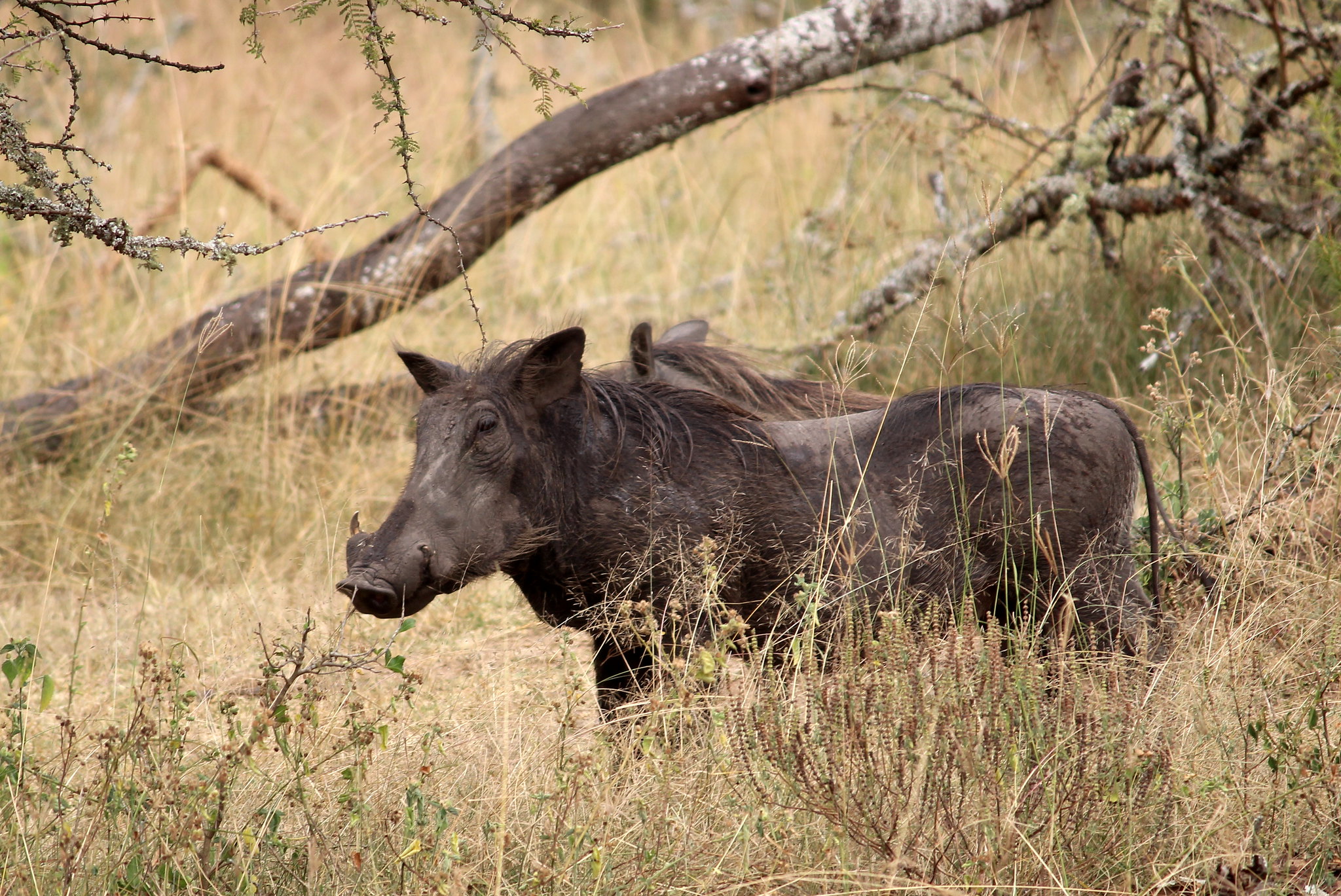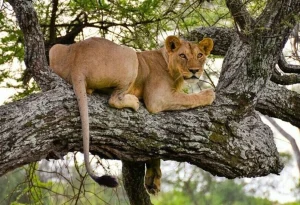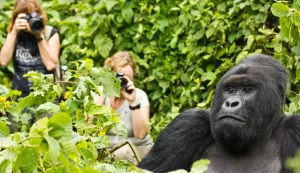Introduction to Rwanda as a Safari Destination
Overview
Introduction to Rwanda as a Safari Destination. Rwanda, known as the “Land of a Thousand Hills,” is rapidly emerging as one of Africa’s most sought-after safari destinations. This small, landlocked country in East Africa offers a rich tapestry of landscapes, from its volcanic mountains and lush rainforests to its sweeping savannahs and tranquil lakes. Rwanda’s commitment to conservation and sustainable tourism, combined with its incredible biodiversity, makes it a unique and compelling destination for safari enthusiasts.
Geography and Climate
Rwanda’s diverse geography is one of its most striking features. The country is characterized by rolling hills, vast tea plantations, and dense rainforests. To the north, the Virunga Mountain Range, part of the Albertine Rift, is home to some of the world’s last remaining mountain gorillas. The eastern plains, where Akagera National Park is located, contrast with the lush forests, offering classic savannah landscapes teeming with wildlife.
Rwanda’s climate is generally mild due to its elevation, with two rainy seasons (March to May and October to November) and two dry seasons (June to September and December to February). The dry seasons are typically the best times for wildlife viewing, though gorilla trekking can be done year-round.
The Rise of Eco-Tourism in Rwanda
Rwanda’s tourism industry has seen significant growth over the past two decades, largely driven by its commitment to conservation and eco-tourism. The government has made substantial investments in protecting its natural heritage, particularly its critically endangered mountain gorillas. Revenues from tourism are reinvested into conservation efforts and local communities, creating a sustainable model that benefits both wildlife and people.
Gorilla trekking, in particular, has become a cornerstone of Rwanda’s eco-tourism strategy. The country has implemented strict regulations on the number of visitors allowed each day to minimize the impact on the gorillas and their habitat. This approach has not only helped in the conservation of these majestic creatures but has also positioned Rwanda as a premium safari destination.
Key Wildlife Species
While gorillas are undoubtedly the star attraction, Rwanda is home to a diverse array of wildlife. Akagera National Park, in the east, hosts the Big Five (lion, elephant, buffalo, leopard, and rhino) thanks to successful reintroduction and conservation programs. Nyungwe Forest National Park, in the southwest, is a primate lover’s paradise, home to chimpanzees, colobus monkeys, and a variety of other primate species.
Birdwatchers will find Rwanda particularly rewarding, with over 700 bird species recorded in the country, including several Albertine Rift endemics. Other notable wildlife includes hippos and crocodiles in Akagera’s lakes, golden monkeys in Volcanoes National Park, and a rich variety of reptiles and amphibians throughout the country.
Popular National Parks and Reserves
Rwanda’s three major national parks each offer a unique safari experience:
Volcanoes National Park
Famous for its mountain gorillas, this park offers one of the most immersive wildlife experiences in Africa. Gorilla trekking here is often described as life-changing, allowing visitors to observe these gentle giants in their natural habitat.
Akagera National Park
This park provides a more traditional safari experience, with game drives across its savannahs, wetlands, and woodlands. The park’s diverse habitats support a wide range of wildlife, including the Big Five, and it is also a great spot for birdwatching.
Nyungwe Forest National Park
This ancient rainforest is one of Africa’s best-preserved montane rainforests. It’s known for its rich primate populations, with 13 species of primates, including chimpanzees. The park also offers the famous canopy walk, providing a bird’s-eye view of the forest.
Why Choose Rwanda for Your Safari?
Rwanda stands out as a safari destination for several reasons. Firstly, its commitment to conservation is exemplary, ensuring that your visit contributes to the protection of endangered species and their habitats. Secondly, the country’s small size means that you can easily combine different experiences—such as gorilla trekking, a classic savannah safari, and rainforest exploration—within a single trip. Lastly, Rwanda’s infrastructure is well-developed, with a range of accommodation options from budget lodges to luxury eco-resorts, making it accessible for all types of travelers.
Conclusion
Rwanda offers a unique safari experience that blends adventure, conservation, and cultural immersion. Whether you’re trekking through the misty mountains to see gorillas, navigating the savannahs of Akagera in search of the Big Five, or exploring the ancient forests of Nyungwe, Rwanda promises a safari that is both enriching and unforgettable. As Rwanda continues to grow as a premier destination, now is the perfect time to explore this remarkable country.




